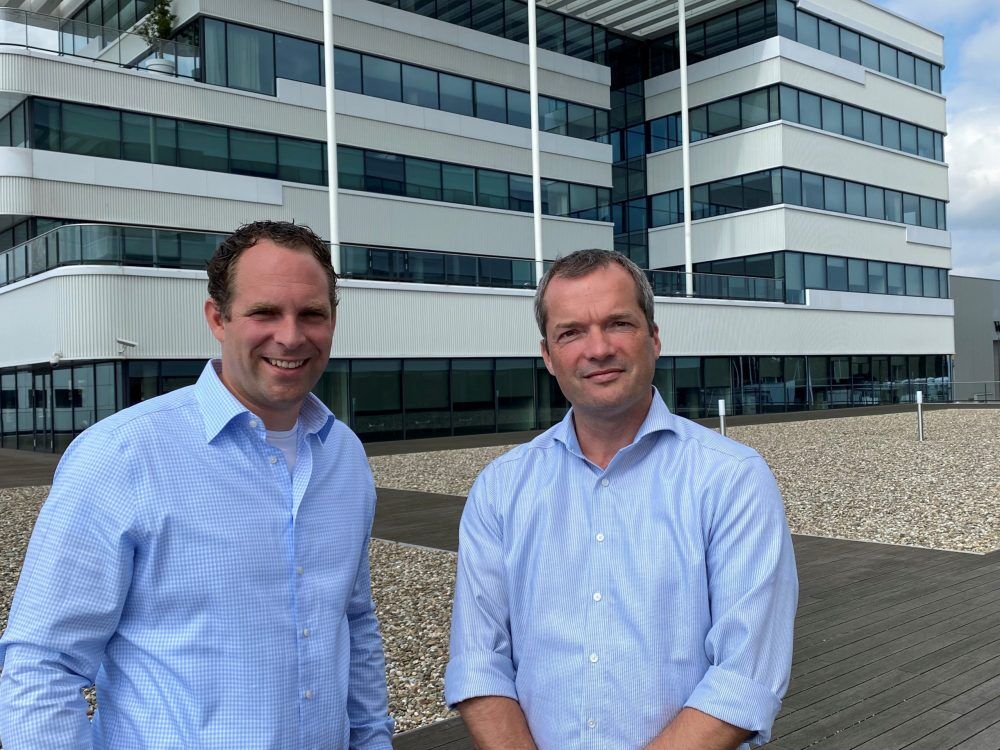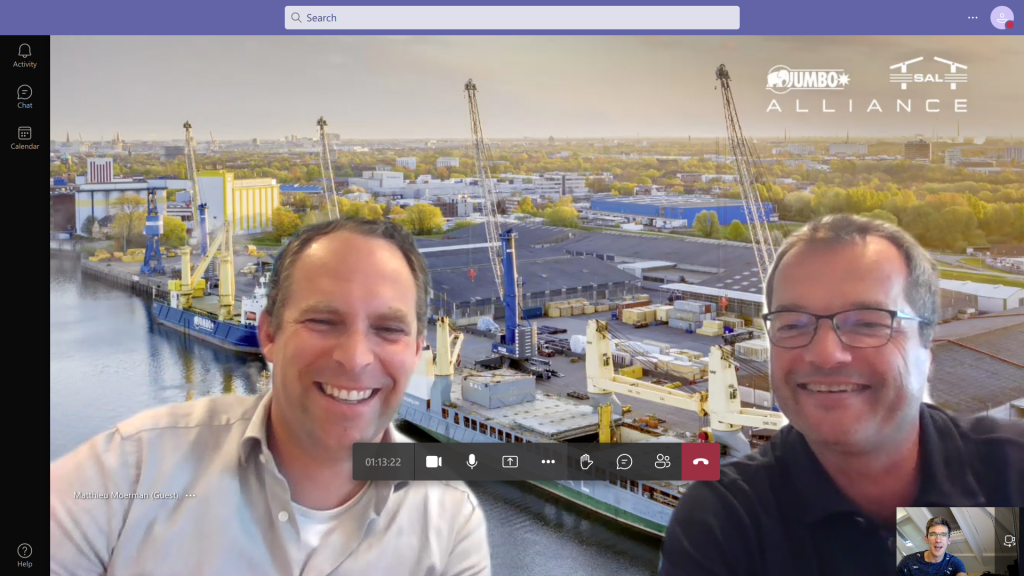
100 days of the Jumbo-SAL-Alliance: an update on the new joint venture in heavy lift and breakbulk by Tom Scott.
In mid-April 2021, SAL Heavy Lift and Jumbo Shipping announced the formation of the Jumbo-SAL-Alliance. This new collaboration signalled the creation of a joint venture in the breakbulk, heavy lift transport and project cargo sector: the German and Dutch companies pooling their resources at every level. On paper, the shared specs are undoubtedly impressive: 30 vessels, the largest fleet in the 800+tonne sector, and a sales network of more than 20 countries. However, a look back over the last 10 years or so demonstrates that joint ventures of this kind need more than just good intentions and warm words to be a success.
Breakbulk.news (BBN) caught up with Jumbo’s Laurens Govers and SAL’s Matthieu Moerman to find out how the first 100 days of the Jumbo-SAL-Alliance has been.
Tell us more about the first 100 days of the Jumbo-SAL-Alliance?
Matthieu: The time has flown by! From the moment we announced the news of the Alliance to the two teams, everybody has been very positive. There has been an openness and willingness from everyone to help each other. An important factor in this was the immediate integration of our offices – in Singapore, China, Tokyo, Houston, Hamburg and Rotterdam – sharing offices and having direct interaction really helped the integration process.
Laurens: We were actually expecting some difficulties. For example, if you mix cultures and egos, you can get clashes of personalities, but this really has not happened. What we are seeing is that throughout the organisation – not only on the commercial side, but also with operations, QHSE, engineering – everybody is keen to learn from each other.
What do you think the reason is for this positive reaction?
Laurens: A lot of these types of joint ventures are orchestrated by CEOs or directors. The Jumbo-SAL-Alliance did it differently. Our CEOs invited the commercial departments to investigate if it would work – and if so, then how would it work. So we spent around two years investigating the subject from the bottom-up instead of top-down. Throughout this period, there were no hidden agendas, no secretiveness. This transparency created trust.
Can you explain the practicalities of sharing offices? It has the potential to be a disorganised, inefficient and unproductive mess. How do you stop this from happening?
Matthieu: Indeed, this could happen….but so far so good! The moment we got the green light, we literally opened our books to each other by generating one common CRM system. Then we can automatically see what is best for a particular vessel or project. Besides scheduling meetings to optimise voyages, we also have regular ‘know your project’ sessions. These involve the Jumbo and SAL teams sharing all their strong points as well as weak points…all the tricks of the trade. This triggers a discussion between each department and their counterpart. This initially focused on vessels, but we are seeing the spin-off into other areas like operations, purchasing and QHSE.
Laurens: One of the key things is that, right from the beginning, we didn’t want to create an us and them situation. If you have that in a coalition situation, then it’s only a matter of time until it breaks. The motto of the Alliance is ‘Stronger, Together’ and this is happening in various disciplines – throughout the company. Sharing lessons learnt, sharing information can only make us stronger. For example, the fact of having a heavy lift ship doesn’t automatically make you a heavy lift operator. That comes from having knowledge and experience. By combining our knowledge, we have created a powerhouse. Is it all hunky dory? Of course not. We are still bumping into certain situations, but then we review, find a solution and off we go again. But we are signalling this to each other with an open mind.

Have you booked much work together?
Laurens: At the moment, it is incredible. The whole market is red hot, and not necessarily because of our Alliance. This is something that we haven’t seen in the last decade.
And how do you organise bookings?
Matthieu: There is not really a ‘Jumbo booking’ or a ‘SAL booking’. We sign contracts as agent to the owner Jumbo and/or SAL. Upon signing of the contract, we have a tentative vessel, and therefore owner, in mind. In case there is a change of date request or optimisation of the schedule, we can change the vessel. The scheduling flexibility that we now have with a shared fleet of 30 vessels is a major advantage of the Jumbo-SAL-Alliance. This flexibility means that we can cope with a client’s rescheduling. Nine out of ten customers don’t really mind whether it’s a Jumbo or a SAL ship that takes their cargo: one is blue, the other is grey – it is the flexibility that they care about.
Is this flexibility more important in the current strong market?
Laurens: The market is moving from a spot market to more of a long-term market. This means that clients need to find a carrier six, maybe eight months in advance in order to secure their tonnage. So clients really have to stick their necks out in terms of forward planning. However, the flexible cargo solution of the Jumbo-SAL-Alliance gives clients the assurance that, if they have a delay in their schedule, the Alliance can probably accommodate it. Having a larger fleet makes it possible for us to take on stricter contract conditions.
Where do you want the Jumbo-SAL-Alliance to be in 10-years’ time?
Matthieu: If we look at the fleet, we do realise that some of our vessels are getting older. I think it will be the perfect symbol of the Alliance if, in a few years’ time, we decide to build a new vessel together. But then, if it took us two years to prepare the Alliance, then it will take us another two years to decide on the colour of that new vessel!
Laurens: We still want to be concentrating on the ‘total cost of project’ – providing customers with skilled crews, experienced engineering, and safe execution for their shipments and projects. But in a nutshell, we want to be the first choice of a customer. If we achieve that, then we have reached our objective.

